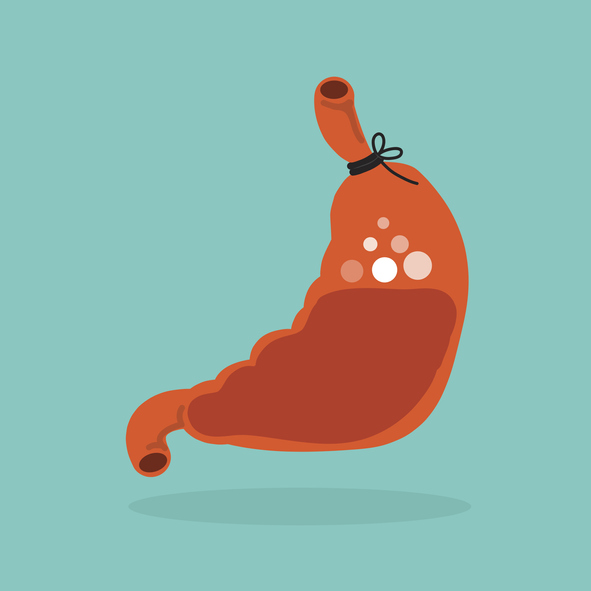
After you’ve had bariatric surgery, following recommended dietary guidelines is extremely important. Your doctor will provide you with a plan designed to limit the calories you consume, while still allowing for enough nutrients to prevent deficiencies and preserve your muscle tissues. At first, you might be overwhelmed with all the rules. As time goes by, though, you’ll find yourself unconsciously incorporating these guidelines into your daily routine. Along the way, your healthcare team will be there to offer support if you struggle.
There are a few general guidelines that all bariatric surgical patients should follow. You’ll need to eat balanced meals with small portions, follow a diet low in calories, fats, and sweets, and high in protein. Keep a record of everything you eat, noting your calorie and protein intake. Eat slowly, taking small bites and chewing your food thoroughly, and don’t use straws, drink carbonated beverages or chew ice. You should also avoid rice, bread, pasta and meats that are not easily chewed. Your daily caloric intake should not be more than 1000 calories, and for the first two months after surgery, you should stay between 300 and 600 calories a day, focusing on thin and thicker liquids.
It’s also important to drink plenty of water, drinking extra water and calorie-free fluids between meals, aiming for 1.5-2.0 liters of fluids each day. Avoid caffeine and alcoholic beverages. You will also be instructed to take a high potency chewable vitamin and mineral supplement each day, as well as a calcium supplement, a vitamin D supplement, and possibly a vitamin B12 supplement. Your doctor will let you know if you need any additional supplements, like folic acid or iron. Your specific supplement prescription will vary depending on the type of bariatric procedure you choose.
There’s a very clear diet progression to observe after bariatric surgery. After surgery your stomach will be very small, about the size of a banana or an egg, depending on the procedure. It’s very important that you take only two or three sips or bites of any new food at a time, waiting about ten minutes before trying any more. Learning your limits and tolerance will be a process, and if you overeat or eat quickly, you may experience pain or nausea. You’ll need to avoid rich, creamy liquids like gravies, sauces, and ice cream.
- Right after surgery, you’ll be on a clear liquid diet, gradually adding thicker liquids once you leave the hospital.
- Two weeks post-surgery, you will be allowed progress to puréed or blended foods, including high-protein, low-calorie liquid supplement drinks that will help you reach a daily protein target of 50 to 90 grams per day, depending on the bariatric procedure. Your goal will be to take in small portions. Start out with one tablespoon portions and increase to two tablespoons gradually, and drink ¼ cup of liquid at a time, gradually increasing to ½ cup at a time. That being said, it’s still important to stay hydrated, so make sure to drink plenty of water.
- By six months after surgery, you should be consuming three meals, for a total of 900 to 1,000 calories per day. You’ll stop taking high-protein liquid supplement drinks and increase the variety of low-fat, low-sugar, and low-calorie foods while continuing to avoid dried fruits, popcorn, nuts, and red meats if you can’t tolerate them.
- Over time, the variety and consistency of foods you’ll be able to tolerate will increase, but you will still need to focus on low-fat, low-sugar, and low-calorie foods, counting your calories each day and sticking to the 900 to 1,000 calorie limit.
If you’d like to learn more about weight loss surgery, Garden State Bariatrics can help. An MBSAQIP accredited bariatric practice, we provide surgical and ongoing medical care to help patients reach their surgical, nutritional and lifelong goals. Passionate about our work and committed to our patients’ success, we will do everything possible to assist you in living your best life.

Are You a Candidate for Weight Loss Surgery?
Take our 60 second assessment and find out if you are a candidate for weight loss surgery


